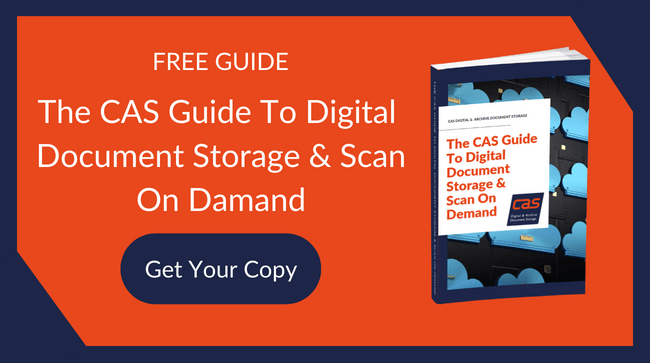When it comes to archiving your physical medical records and documents effectively, you can save yourself a lot of pain by coming up with a document retention plan before you start filing items away. Carefully planning your storage saves time and helps you to retrieve, sort, and use old files as and when you need them.
It's a legal must-have, too. Your organisation could face prosecution or fines if you don't take good care of your confidential, vulnerable data. For medical records, it's a particular concern. Patient data often needs to be kept intact, readable, and secure for decades on end. Luckily, there's a simple, established five-point template that will help you create an excellent strategy to keep your old records secure.
1) Create A Needs Assessment
The first step is to draw up a comprehensive record-keeping needs assessment, covering:
- What medical records will be created and stored
- What those records are printed on (e.g. printer paper, cellophane)
- The volume of new, long-term archival records expected in a set period (i.e. one year)
- The length of time they're to be kept for before disposal (including legal requirements)
- Any extra items needed to be stored with the records (e.g. samples, boxes, shelving, filing cabinets)
- If they need to be stored on-site or not
- Any digital duplicates and backups
- Who'll be generally responsible for records (a data compliance officer)
From there, you can map out where and how you'll store each batch of paperwork. If you're dealing with many sensitive documents with vastly different long-term requirements (e.g. adult dental records) it might be worth splitting a larger company deposit into separate 'chunks' and planning accordingly.
2) Find A Storage Space - Then Plan The Basics
Once you've selected your storage room, it's time to carry out an environmental risk assessment on your archive. You can usually skip this step if you're entrusting your records to be warehoused off-site by an accredited third party (as with CAS Ltd.).
Common hazards such as excessive heat and cold, mould, damp, rain and snow ingress, flammable materials, and UV exposure all damage, warp, and destroy records over the years. If you're using an outdoor shed or unit, it's doubly important to keep these threats in mind.
3) Create Your Record Retention Schedule
Once your records are safely locked away, you'll need to come back to check on their wellbeing occasionally and destroy any that have 'timed out' or ceased to be relevant (in compliance with GDPR). To avoid accidental record destruction and unfortunate legal breaches, you should draw up a retention schedule and assign named personnel who will handle each task.
The record retention schedule (or RRS) should clearly cover when each category of medical record should be shredded and by whom. The RRS document should be available to everyone accessing the archive. Retention requirements vary enormously between record categories. The BMA, NHS, and your third-party storage provider can all give you document retention advice that you can use to keep your long-term archiving legal and ethical.
4) Check (Or Upgrade) Your Security
Is your archive an easy target for criminals looking to steal your data? Make sure you have card readers, locks, routine checks, CCTV, up-to-date authorised access lists, and alarm systems in place. Any archive fencing, doors, and walls need to be firmly secured, unscalable, and free of wide gaps. Alternatively, outsource your records to a larger third-party, who can keep a constant eye on your sensitive items for within a secure warehouse.
5) Create A Disaster Recovery Plans
Sometimes, even the best storage facilities can lose documents through no fault of their own. How will you get back your data in the event of a fire, flood, collapse, or other accidental destruction? Draw up a stepped plan with an estimated timescale for how you'll restore your saved files or backups to full use and a new location. Digital scans, photocopies, and secure database logging can all help you recover.
Safe And Reliable Off-Site Medical Storage From CAS Ltd.
CAS specialise in secure document retention for medical practices, GP surgeries, hospitals, and other medical and dental service providers. Our warehouse comes equipped with all the monitoring, security, and stability features needed to keep your records intact and locked for years on end. Get in touch today for a free quote.
Image Source: Unsplash


